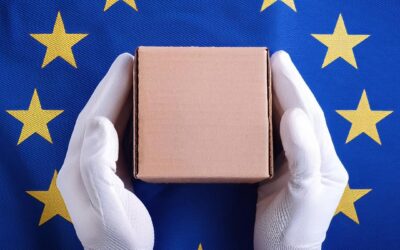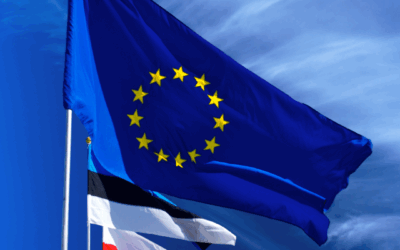[Partner article]
Latest Updates on the VAT in the Digital Age Reform


VAT is among the most important revenue sources for the member states’ national coffers. Factually supported statistics show that, on average, from the perspective of the entire EU, around 20% of the revenue from tax collection comes from the value-added tax.
This data unquestionably shows VAT’s importance in gathering resources within the tax space. Based on these facts, it’s not difficult to comprehend why the national tax authorities and the EU are continuously looking for areas they can improve to decrease the level of tax fraud, evasion, and other illegal activities that contribute to the VAT gap.
The VAT gap
The VAT gap represents the difference between the tax collected and the tax that should have been collected if “everything has been handled in alignment with tax provisions.” At the EU level, the VAT gap has been reduced in recent years thanks to the implementation of more sophisticated, effective tax monitoring and collection tools.
It shouldn’t be unnoticed the continuous work of EU institutions to modernize their tax collection systems, decrease the administrative burden for all economic operators that have business interests in the EU, and reduce the necessary investments for tax compliance, primarily if they operate cross-border.
Inspired by the positive results made in the last few years, the EU Commission has been working for some time to address the challenges of the modern, globalized economy and the growing percentage of cross-border and intra-EU transactions between EU and non-EU businesses.
Digitalization is, without any doubt, one of the main drivers of the expansion of cross-border trade. We witness on a monthly basis, the importance of e-commerce and the digital economy, where new types of business models and sectors are being developed.
To strengthen the tax collection system in the fight against VAT fraud, the EU Commission presented on December 8, 2022, a three-pillar proposal to amend the VAT regulatory framework. The proposal is based on three subjects:
- to simplify the Single VAT Registration,
- to introduce Digital Reporting Requirements for intra-EU transactions,
- and to enhance the tax collection process within the space of Platform Economy.
Three Pillars
The proposal from the EU Commission is focused on three different areas in which EU officials see the most urgent need for change and upgrade at the present moment.
Digital Reporting Requirements
Introducing the Digital Reporting Requirements(DRR) for intra-EU B2B transactions represents the most complex and challenging part of the reform. The Commission proposes introducing a digital reporting system based on e-invoicing for B2B intra-community transactions.
This practically means that e-invoices will become a standard for B2B intra-EU transactions and that the taxpayer will be obliged to digitally report the transaction to the domestic tax authority in accordance with local requirements.
Platform Economy
The EC is looking to introduce the statutory requirement of the deemed suppliers for the digital platform operators within the sectors of passenger transport and short-term rental accommodation. From the tax perspective, it means that the platform will take responsibility for tax collection and remittance for the transactions between underlying suppliers and end customers, that are facilitated by the platform itself.
This doesn’t automatically include that all underlying suppliers are obliged to “renounce” their possibility to be responsible for tax collection and remittance if they are VAT registered. They can continue to do this independently, but this should be supported by a contract between the platform and provider.
This part of the EU ViDA is proposed as an adequate response to trying to combat VAT fraud when it comes to non-reporting of owed tax from the suppliers operating in these sectors, and equally to trying to balance the competition between online and offline service providers.
In July 2021, as part of the E-Commerce reform, the EU introduced the concept of the One-Stop Shop Scheme (OSS), which represents the expansion of the previously implemented Mini-One-Stop Scheme (MOSS). The enlargement of the original MOSS is shown in the establishment of three separate schemes: the non-EU OSS, the EU OSS, and the IOSS.
One of the most important reasons for the implementation of these schemes is the reduction of the compliance costs for EU and Non-EU established businesses for the cross-border sales of goods or provision of services.
Through the usage of these schemes, suppliers can drastically reduce their compliance costs when making taxable transactions in the countries where they aren’t established or don’t have a VAT registration.
The introduction of these schemes was a massive success on the EU level. However, the EU Commission has noticed a variety of gaps that should be addressed and adequately resolved. The Single VAT Registration pillar summarizes this.
In the VAT in the Digital Age proposal (ViDA proposal), the EC wants to expand the spectrum of taxable transactions that could be reported using one or more of the OSS schemes. This will undoubtedly reduce businesses’ compliance costs.
One of the measures is to eliminate the necessity of VAT registration for businesses that are making the transfer of their own stock (moving their own goods) from one warehouse to another. At the present time, this transfer of goods automatically draws the necessity to be VAT registered in the country where the stock moves.
VAT in the Digital Age: Developments
Let’s have a short but practical insight into the VAT in the Digital Age reform since its official proposal. The European Commission proposed modifying the VAT regulatory system on December 8, 2022. After many discussions between various parties, stakeholders, and representatives from each Member State, the EU Parliament expressed its positive opinion on the proposal in November 2023.
On 8 May 2024, the EU Council presented the revised proposal (draft act) that should have been the basis for the new agreement, based upon the willingness of the Council to reasonably find a compromise between differentiated opinions on the relevant parts of the proposal.
The Economic and Financial Affairs Council (ECOFIN) held a meeting on May 14, 2024, that should have been the winning one, the one that would have greenlighted the draft proposal from the Council. However, that wasn’t the case. While the representatives of the Member States have agreed (in most parts) to proposals based on the Single VAT Registration and Digital Reporting Requirements Pillar, the different views concerning the Platform Economy pillar couldn’t be compromised.
The Estonian minister of finance firmly opposed the idea of the statutory introduction of the deemed supplier model for digital platform operators in short-term rental accommodation services and passenger transport services. The officials tried on a few occasions to modify the terms of the original proposal, changing the “rigid” approach that had been shared in the first version, and looking for compromise, but the MoF of Estonia upheld his position. The Minister asked that the deemed supplier concept for the digital platform operators in these sectors be flexible. This would mean that Member States would have an opt-out clause that would permit them to decide whether to introduce this mandate within the framework of domestic regulations.
This approach was firmly opposed by the Ecofin members. Even the last meeting of Ecofin during the Belgian presidency, held on June 21, 2024, did little to change this regard.
What the future holds
The negotiations are going to be held under the Hungarian presidency, which presides over the Council of the European Union for the last quarter of 2024. There is still space for the ViDA reform to be adopted within this year. At the moment, the “Belgian presidency” compromise to modify pillar two, which includes an “opt-out” clause for SME platforms, is still being favoured, leaving Estonia’s approach at the margins.
Soon, it will be seen if the parties find a solution for the “obstacles” to the agreement. Next Ecofin meeting is going to be held on November 5, 2024.
About our partner 1stopVAT

Established in 2020, 1stopVAT has rapidly built a reputation as a trusted tax compliance partner, serving over 700 businesses across 100+ global locations. Our expertise lies in managing the most complex tax challenges, allowing our clients to focus on their core business operations.
Why Partner with 1stopVAT?
- Expertise: With over 12,000 VAT returns processed annually, we’ve proven ourselves as reliable and efficient service.
- Diverse Clientele: From e-commerce platforms like Amazon and eBay to non-profits, we tailor our services to meet diverse business needs.
- Simplified Compliance: We streamline VAT registration, filing, and consulting, making it easy for businesses to remain compliant without the hassle.
Author: Aleksandar Delic (1stopVAT)

LIZENZERO.EU makes packaging compliance in Europe very easy.
Do you ship your products to different countries in the EU? Many different legal requirements and obligations can make the whole thing quite complicated – but don’t worry, we’ll do it for you. How do we do it? With our licensing service, we take over all obligations for you by power of attorney. Sounds good? We’ll be happy to advise you.
For shipping to Germany, you can easily fulfill your packaging obligations yourself via Lizenzero.de.
Deposit systems in the EU explained
Deposit systems show that simple solutions help to keep packaging in circulation and increase recycling rates. However, there are major differences within the EU: while countries such as Germany, Sweden and Finland have been using deposits for years and achieving high return rates, other Member States are still in the early stages.
Mandatory from 2026: The EU Authorised Representative for Packaging explained
Europe is an attractive but regulatory complex market. One of the more complex requirements is the appointment of an authorised representative (AR). The AR is the central interface between the manufacturer and the European market surveillance authorities. The authorised representative plays an important role in product safety and extended producer responsibility (EPR) and is therefore becoming increasingly important to ensure access to the market.
Authorised Representatives in Europe: Which ones are there and what do you need them for?
Europe is an attractive but regulatory complex market. One of the more complex requirements is the appointment of an authorised representative (AR). The AR is the central interface between the manufacturer and the European market surveillance authorities. The authorised representative plays an important role in product safety and extended producer responsibility (EPR) and is therefore becoming increasingly important to ensure access to the market.





